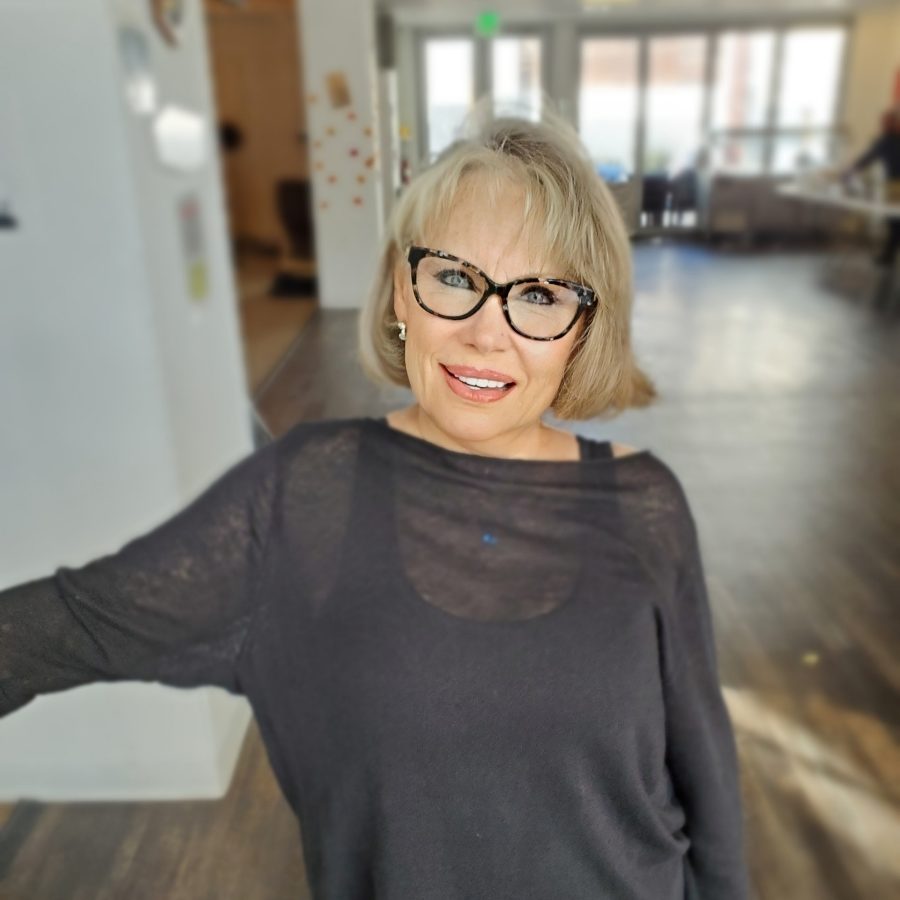Many of us, as addicts, can look back and see when we hit rock bottom. Judy S., a resident and intern here at Beit T’Shuvah, has more than one. Eleven years ago, she was driving drunk in Sonoma County, traveling 85mph on a road signed for 35mph, and crashed head-on into another vehicle. The other driver was killed instantly and that car’s other passenger, the driver’s daughter, was thrown from the car and gravely injured. Judy’s Jeep rolled three times and hit a tree, crushing her legs.
For the entirety of her adult life, Judy was high. “I was high one way or another. If it was there, I’d try it.” It started when she was 18, with pills stolen from her father. “The first time I took one of the pills, it was amazing. I was on the phone. I was social. I was always happy—things I had always wanted to be—and I wasn’t hungry.”
Judy moved to Orange County, worked at a restaurant, and advanced from a lunch waitress to general manager in a year and a half. She’d join her work friends after hours and drink to excess and take amphetamine pills. “I would lie to the psychiatrist, give them all the signs of attention deficit disorder to get a prescription.”
To make the cost of these prescriptions affordable, Judy would make sure she had good insurance through her boyfriend. “Instead of paying $2,000 for my amphetamine fix, it was only costing me $5 copay. When we broke up and that insurance ran out, I was screwed.” The fact that her drugs were supplied legally through a doctor kept her in denial. She eventually had prescriptions for Vicodin, Norco, Adderall, and benzodiazepines. “They were all prescribed. I thought everything was under control.” Her doctors would inevitably cut her off, so she started stealing blank prescriptions. Then she tried to pass a forged script for Vicodin with eight refills, which alerted the pharmacy, and she went to jail for 180 days.
Judy’s drinking and drug finally halted after she pleaded guilty to gross vehicular manslaughter and was sentenced to ten years with a three-year enhancement for great bodily injury. “For the first year in prison, I basically felt I had died and gone to hell. I was dry for the first nine months.” She became interested in a program allowing some of the women in the prison to earn their credential as a Certified Alcohol Drug Counselor (CADC). “I signed up and out of 150 people, I got chosen and there were 40 of us. 28 of us graduated.”
After completing her certification as a drug and alcohol counselor, Judy transferred from the Central California Women’s Facility in Chowchilla to the California Institution for Women in Corona. It was there she met prison chaplain Rabbi Moshe Halfon. “My grandmother had asked me to seek out my Judaism when I was 18, and I pretty much laughed it off.” Rabbi Halfon would speak of Beit T’Shuvah and Judy became interested. “I just kept hearing all these good things about Beit T’Shuvah, and it was about four years until I was going to parole so I asked about how to go about it.” She filled out the application and went through the process. “I filled out my application as if I was doing a treatment plan on somebody else.” Beit T’Shuvah read it and wrote back that it wasn’t just a sober living, it wasn’t just the next step out of prison—it’s more than that. “I was denied.”
Judy decided to get honest and wrote back. “I wrote that all I wanted then was a handful of Vicodin and a glass of Chardonnay. I got real—no more fancy clinical talk.” Six months later, she received a letter saying that she was accepted and arrived here last December.
A few months later, with COVID-19 bearing down on the world, Judy stepped up and put her practical skills to work, assisting the community with mask-making for the residents, then as a thank-you gift for donations. This fall, after a conversation with Nancy Grant, Director of Development, discussing her years of experience in advertising and marketing, Nancy suggested she help out with the gala. “I wanted to work here, and I kept reaching out, wanting to help in some way.”
Judy started out cleaning and polishing items, getting them ready for the gala’s auction. She has since added researching items for pricing. She especially enjoys the experience of seeing the parts of Beit T’Shuvah behind the scenes. “It didn’t cost me anything to come here. I didn’t have anything, but it wasn’t going to cost me anything. Beit T’Shuvah consistently gives and now I’m learning to give back.”
